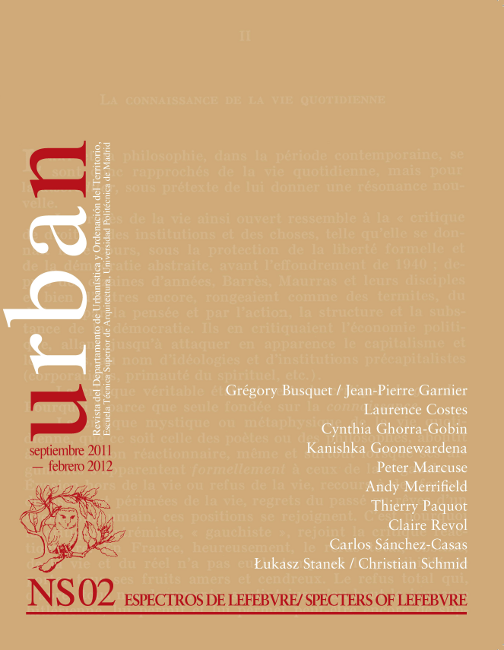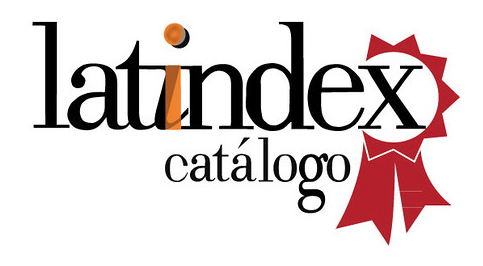Del ‘derecho a la ciudad’ de Henri Lefebvre a la universalidad de la urbanización moderna / From Henri Lefebvre’s ‘Right to the City’ to the universality of modern urbanization
Resumen
ResumenEn 1968, Henri Lefebvre publicó su obra Le Droit à la ville (El derecho a la ciudad) en la que trataba la tendencia generalizada hacia la urbanización y reflexionaba sobre sus repercusiones para el ser humano y para el futuro de la humanidad. Lefebvre se refería al ‘derecho a la ciudad’ como uno de los derechos fundamentales del ser humano y de la ciudadanía, un derecho que implica la motivación de la sociedad civil para re-crear la ciudad como parte de una ‘misión’ común y colectiva. Actualmente existe cierto número de investigaciones dedicadas específicamente a estudiar las consecuencias de este movimiento urbanizador generalizado, que confirman parcialmente el análisis de Lefebvre: la destrucción gradual del modelo de ciudad tradicional, el ascenso de una sociedad globalizada de la cual son expulsados, a diferentes velocidades y bajo aspectos diversos, los ‘marginados’ —los excluidos de los beneficios de la globalización— y la necesidad de que a nivel internacional se produzcan debates sobre ese derecho. Si el ‘derecho a la ciudad’ permite la posibilidad de múltiples interpretaciones, su persistencia subraya a su vez la importancia de las cuestiones sociales subyacentes que afectan, hoy más que nunca, a los debates sobre la urbanización y su papel en el futuro.
Palabras clave: Derecho a la ciudad, segregación, capitalismo, espacio público, expansión de la urbanización.
Abstract
In 1968, Henri Lefebvre published a work entitled The Right to the City in which he speaks of the general trend toward urbanization and talks about its repercussions for man and likewise for the future of mankind. He refers to ‘the right to the city’ as among the fundamental rights of man and of citizenship, a right which involves the motivation of civil societies to recreate the city as part of a collective and common ‘mission’. There are currently a certain number of studies dealing specifically with the consequences of this general urbanizing movement which partly confirm Lefebvre’s analysis: the gradual destruction of the traditional model of the city, the rise of a global society in which, at differing speeds and under various guises, the ‘outcasts’ —those excluded from the benefits of globalization— are thrown together and because of whom on an international level the debates over this right arise. If the ‘right to the city’ allows for the possibility of multiple interpretations, its persistence likewise highlights the importance of the underlying social issues which are affecting more than ever the current deliberations brought to the fore by urbanization and its future roles.
Keywords: Right of the city, segregation, capitalism, public space, sprawl.
Descargas
Descargas
Publicado
Número
Sección
Licencia
El copyright del texto y la edición será cedido por los autores a la Revista Urban del Departamento de Urbanística y Ordenación del Territorio (Escuela Técnica Superior de Arquitectura de Madrid - Universidad Politécnica de Madrid).
Esta cesión se realizará mediante la firma y envío vía mail al Equipo Editorial del modelo de carta que se encuentra en la web de la revista.
La revista permite el auto-archivo de la versión post-print (en su versión editorial) después de un periodo de 12 meses tras la publicación de la revista. La Revista Urban autoriza este auto-archivo en páginas web personales de los autores y repositorios institucionales y/o temáticos.
Urban is an open access journal which means that all content is freely available without charge to the user or his/her institution. Users are allowed to read, download, copy, distribute, print, search, or link to the full texts of the articles on this journal without asking prior permission from the publisher or the author. This is in accordance with the BOAI definition of open access.









